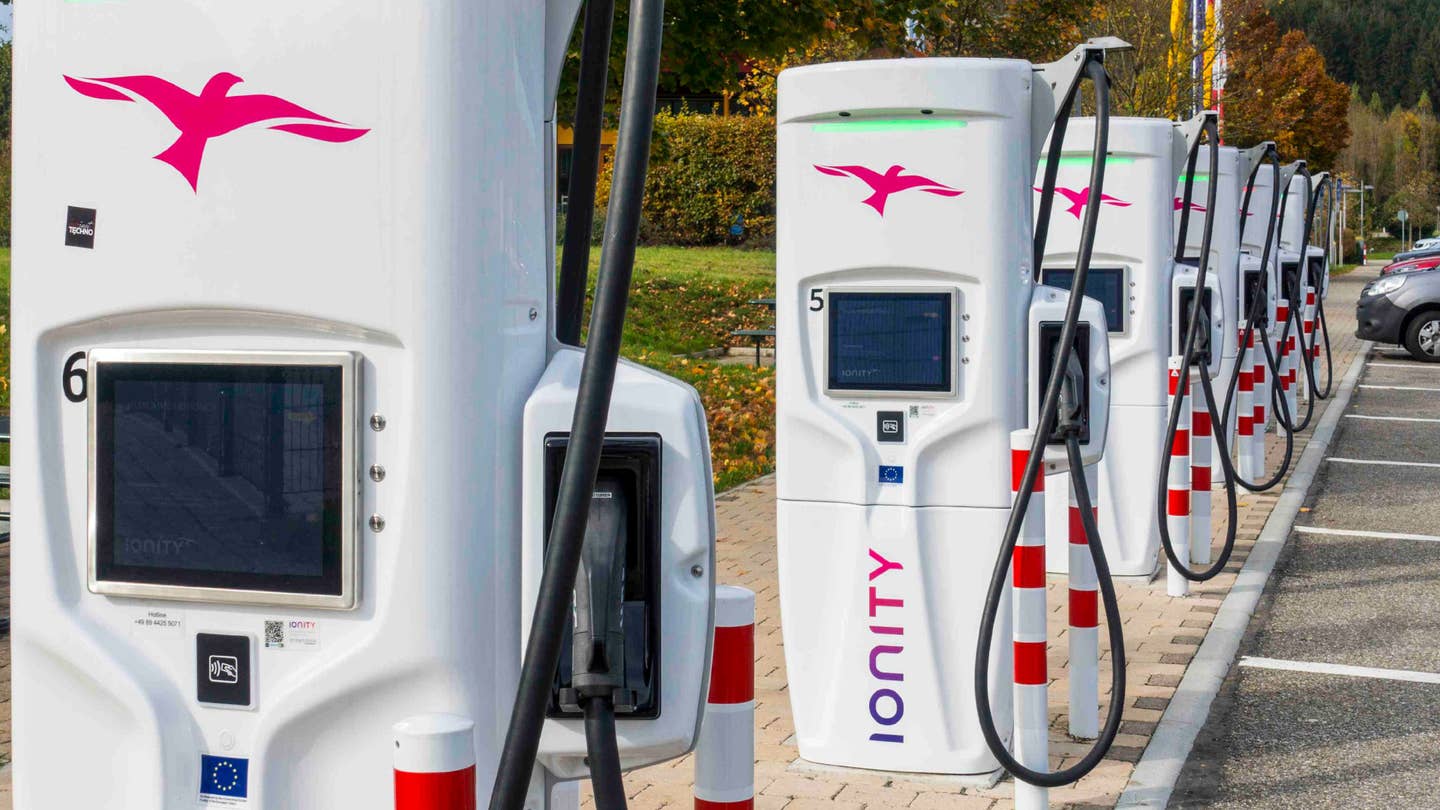The country will need to increase its charging footprint by more than ten-fold if it hopes to reach its end-of-decade target.

EVs have been good for a while now, and market share is steadily growing relative to traditional ICE-powered vehicles. However, charging infrastructure is still a sore point in many jurisdictions. Germany is looking to a legislative solution to this problem by requiring gas stations to install EV chargers.
As covered by Reuters, German Chancellor Olaf Scholz took to the IAA Mobility show in Munich to explain that Germany would be “the first country in Europe to introduce a law requiring operators of 80% of all service stations to provide fast-charging options with at least 150 kilowatts for e-cars.” Scholz did not provide a timeline for the introduction of the law.
Presently, Germany has 90,000 EV chargers available to the public. It hopes to scale that to 1 million chargers by the end of the decade as it aims to ease the introduction of more electric vehicles to the country’s roads. As a comparison, the U.S. had over 160,000 chargers installed by January 2023, albeit spread over a landmass 27 times larger.
Germany currently has 1.2 million EVs on the roads, but targets 15 million by 2030. Having robust and readily available charging options will be key to achieving that figure. Presently, fears around limited charging stations have dampened EV uptake, particularly in rural areas, along with high prices and range anxieties.
Scholz’s proposed legislation could be a key tool in getting Germany wired up for EVs. The country has already seen legal fights in this area, with Tesla suing Germany’s largest gas station operator, Tank & Rest, over rights to install charging stations on crucial Autobahn routes.
While the move will be welcomed by many consumers and EV industry figures alike, Scholz was not universally popular at the Munich event. According to Bloomberg, protestors from Greenpeace stood atop several display cars to demand more investment in public transit projects and environmental efforts. Scholz dismissed the protestors as “anachronistic,” noting their stand took place against a backdrop of technologies designed to reduce emissions and help the environment.
The legislation indicates that the German government is getting serious about EV charging, having identified that the industry needed a push. If the move proves successful, expect other jurisdictions to follow the example in short order.
Got a tip? Let the author know: lewin@thedrive.com

